The enemy of the conventional wisdom is not ideas but the march of events
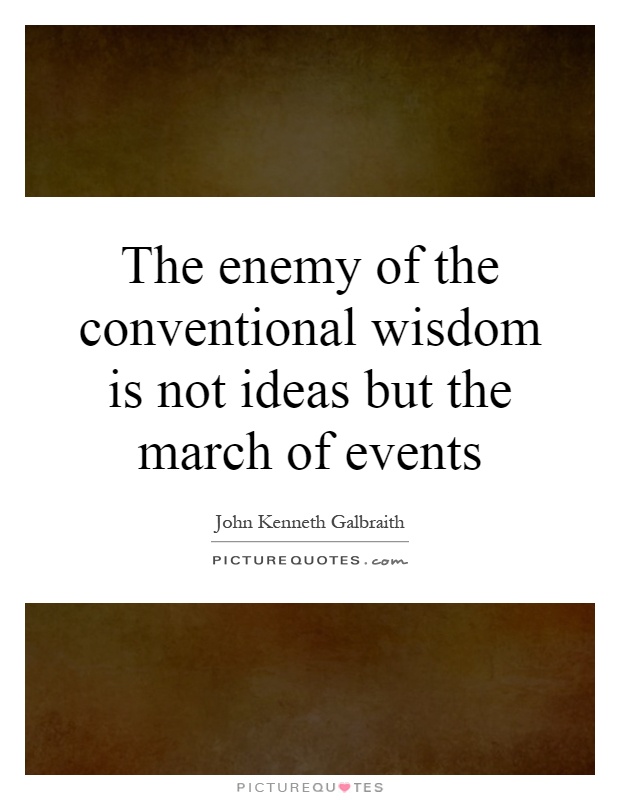
The enemy of the conventional wisdom is not ideas but the march of events
John Kenneth Galbraith, a renowned economist and public intellectual, was known for challenging conventional wisdom and questioning the prevailing economic theories of his time. He believed that the enemy of conventional wisdom was not new ideas, but rather the march of events that often exposed the flaws and limitations of established beliefs.Galbraith was a firm believer in the power of empirical evidence and real-world observations to shape economic theory and policy. He argued that economic theories should be constantly tested and revised in light of changing circumstances and new information. In his seminal work, "The Affluent Society," Galbraith critiqued the prevailing economic orthodoxy of the 1950s, which focused on maximizing production and consumption, and instead advocated for a more balanced approach that took into account the social and environmental costs of unchecked growth.
Galbraith's skepticism of conventional wisdom was rooted in his belief that economic theories often failed to account for the complexities and uncertainties of the real world. He famously quipped that "the only function of economic forecasting is to make astrology look respectable." Galbraith believed that economists and policymakers should be humble in their predictions and open to revising their theories in light of new evidence.
Throughout his career, Galbraith was a vocal critic of the prevailing economic orthodoxy, which he believed was often driven by ideology rather than evidence. He argued that economic theories should be judged not by their adherence to established dogma, but by their ability to explain and predict real-world events. Galbraith's emphasis on the importance of empirical evidence and critical thinking continues to resonate today, as economists and policymakers grapple with the challenges of a rapidly changing global economy.
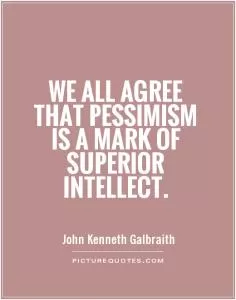
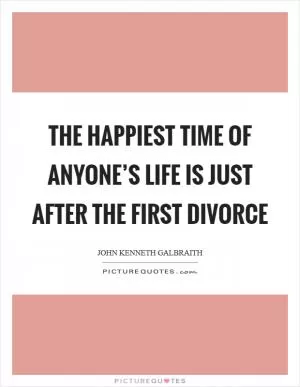

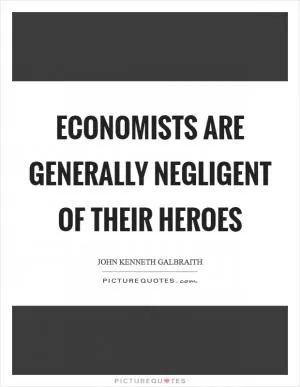
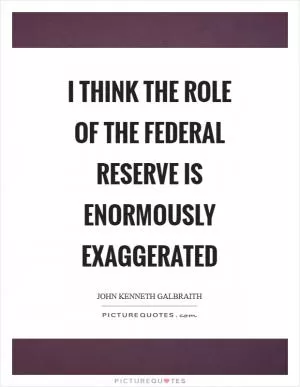







 Friendship Quotes
Friendship Quotes Love Quotes
Love Quotes Life Quotes
Life Quotes Funny Quotes
Funny Quotes Motivational Quotes
Motivational Quotes Inspirational Quotes
Inspirational Quotes